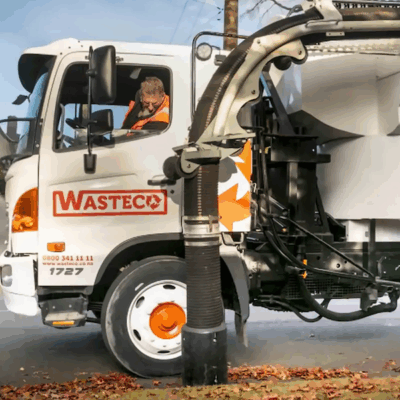NZ businesses are gearing up to embrace an automated future
In today’s fast-paced business landscape, staying ahead of the competition requires effective leadership and cutting-edge technologies. One such technology that has transitioned from an emerging trend to a core element […]
|
In today’s fast-paced business landscape, staying ahead of the competition requires effective leadership and cutting-edge technologies. One such technology that has transitioned from an emerging trend to a core element of daily operations is business automation. Its impact is indelible, with almost 90% of ANZ organisations already using at least one form of business automation. And it’s only ramping up. A new report by Kyocera Document Solutions AU & NZ sheds light on the growing role business automation (BA) is playing in the workplace. Based on a quantitative survey of 275 Australian and New Zealand professionals, the report delves into the current and future role of BA in a range of industries. This comes as the growing uptake of automation technologies more generally is forecast to have a tremendous impact not only on businesses but entire economies, with an expected $303 billion boost to New Zealand’s GDP by 2030. This economic shift signifies that we’re on the cusp of transformation, as 40-60% of workforce activities will be automated in the decade to 2030, and between 3.5 million and 6.5 million full-time jobs will be affected. Organisations adapt to a changing business landscapeAs a result, forward-thinking business leaders are looking to proactively prepare their workforce, ensuring all employees are appropriately trained and equipped to accommodate the new tasks, roles and responsibilities that come with BA technologies. Beyond that, the incentives to implement BA are far-reaching, providing companies with the agility, innovation and adaptability to thrive amidst unpredictable market shifts. In fact, almost 80% of ANZ companies report that BA solutions are helping their organisations to improve operations and achieve business goals. As a result, more than half of all employees also said that they are seizing new business opportunities thanks to automation, underscoring its potential to drive growth. On the other side, however, the remaining 44.36% admitted to missing out on such opportunities because they were not taking advantage of all that BA had to offer. This highlights the importance of effective implementation of BA solutions, encompassing company-wide approaches, as well as comprehensive employee education and training programs. These measures can uplift BA usage and ensure its benefits are more widely felt across every industry. New Zealanders are ahead of the BA gameIn good news for New Zealanders, in almost all measures of preparedness for an automated future, New Zealand businesses outperformed their Australian counterparts. NZ businesses were more likely to be in the process of establishing both company-wide BA strategies and BA Centres of Excellence. And when it came to people and training plans, 80% of NZ businesses either had a plan in place or were creating one, compared to just 64.57% of Australian businesses. This suggests that while companies in both countries are at a similar level with regard to uptake of BA technology thus far, NZ organisations are more alert to the role BA will play in the workplace of the future. More than that, they are positioning themselves to take advantage of this opportunity and pull ahead of market competition. How can NZ keep preparing for an automated future?BA offers an unparalleled opportunity for organisations to be pioneers of the modern workforce and sustain business growth. But to fully harness the productivity-enhancing potential of business automation, organisations must spearhead holistic transformations across all company structures, strategies and manner of working. In particular, there is room for greater uptake of BA technology across sales and marketing, risk management, compliance and auditing, and people and HR departments. The onus is on leaders to reimagine business processes, implement new technologies, embed digital transformation into the company culture, and prioritise the necessary reskilling and upskilling in preparation for an automated future. In an ever-changing world, the first-adopters will be better positioned to take advantage of new market opportunities and ride out future disruptions to the economy and business landscape. Want to learn more about the state of business automation and how to prepare for the next phase? Download An Automated Future to discover how BA will shape Australian and New Zealand organisations in 2023–25. |






